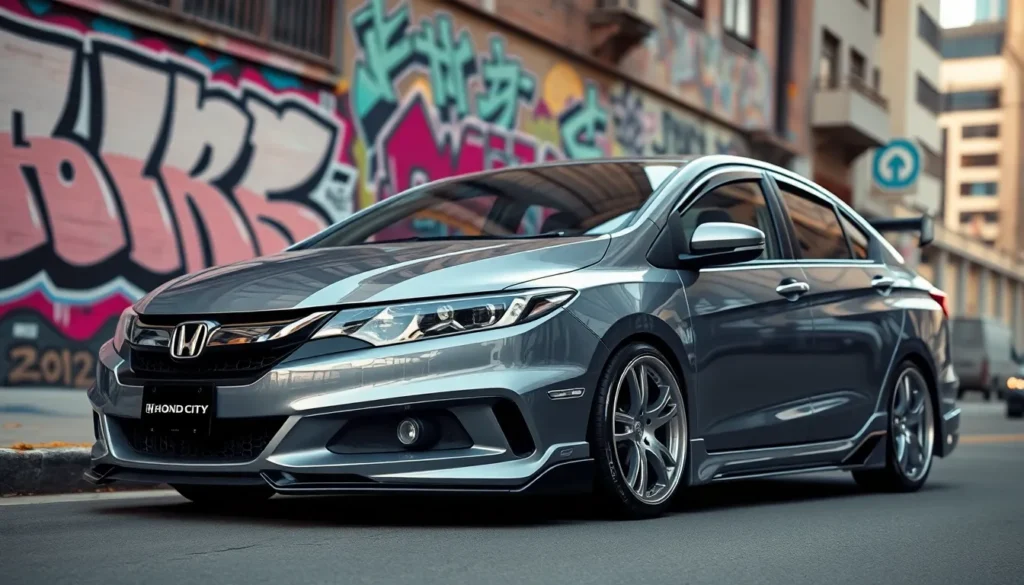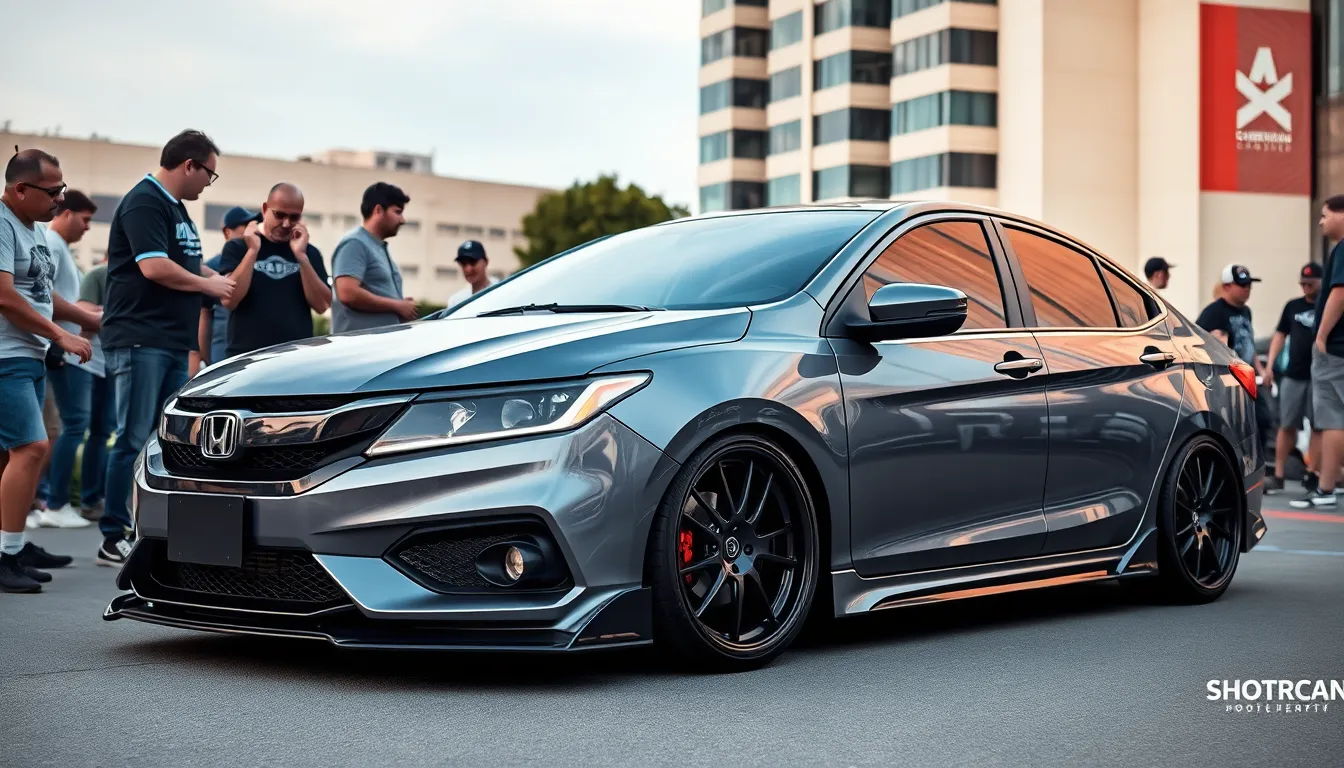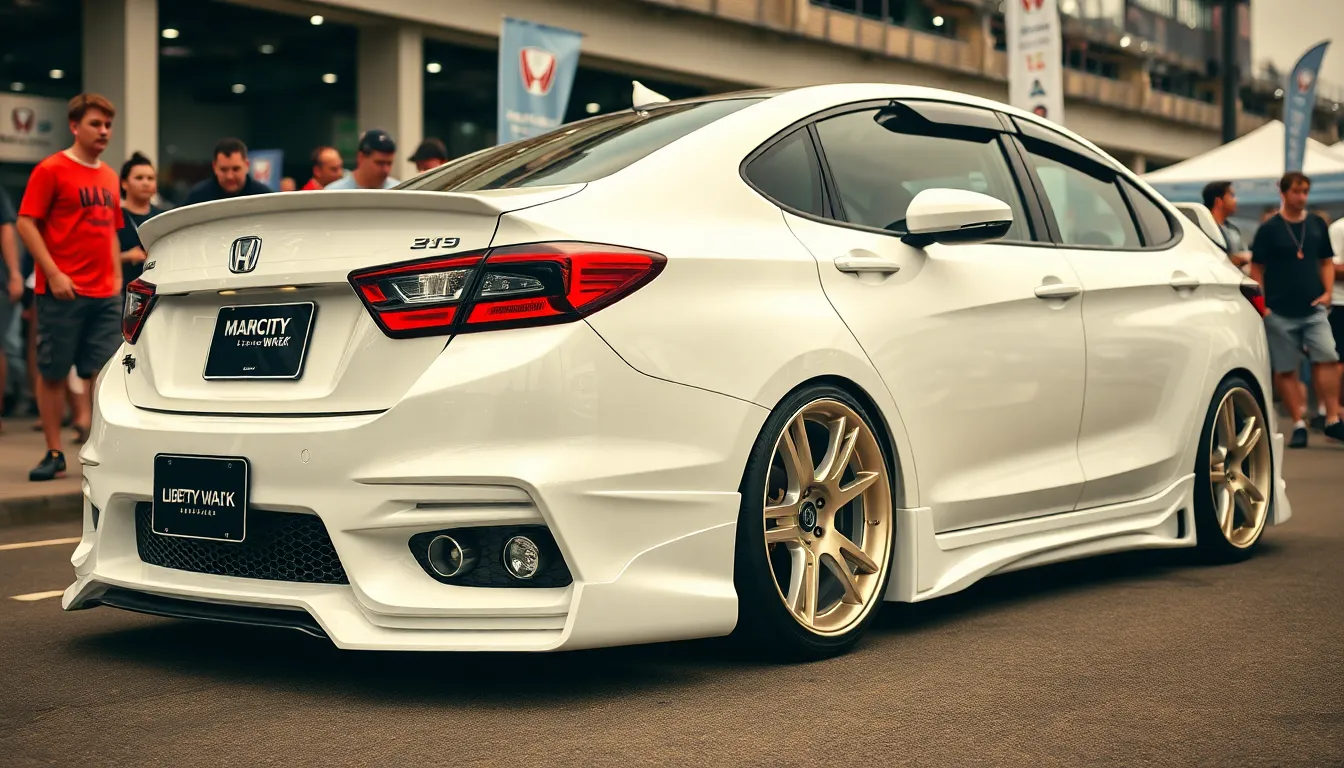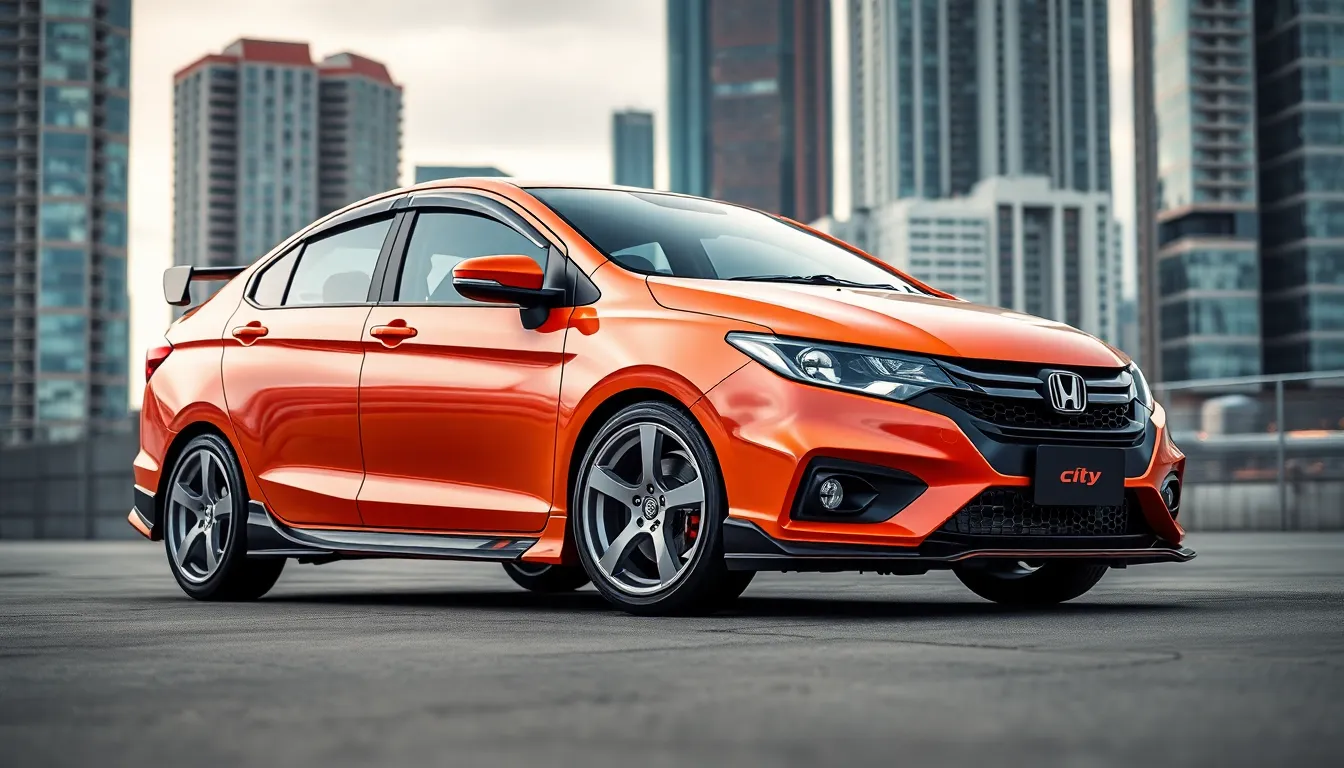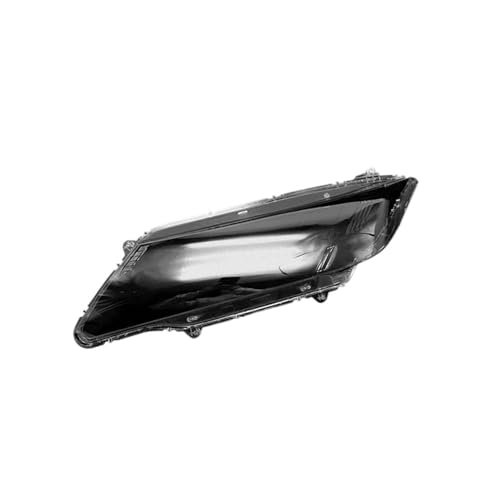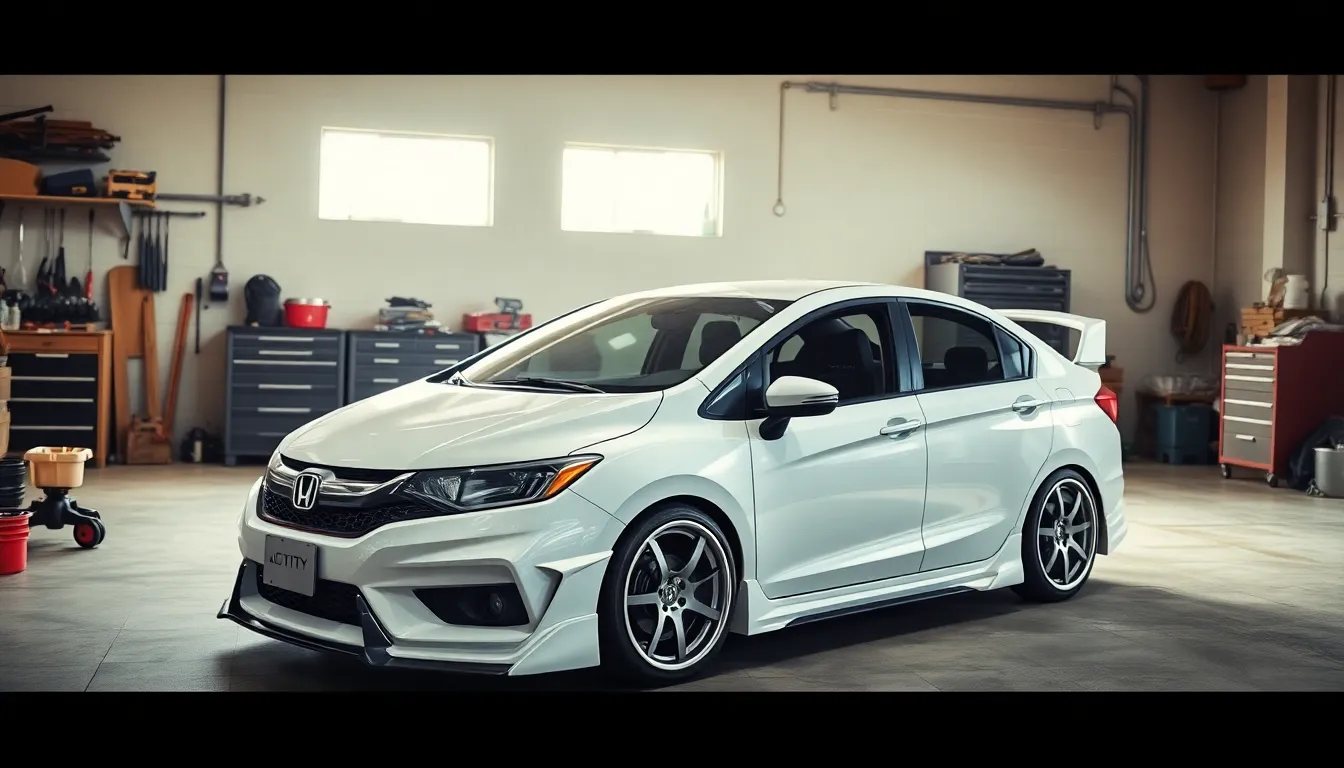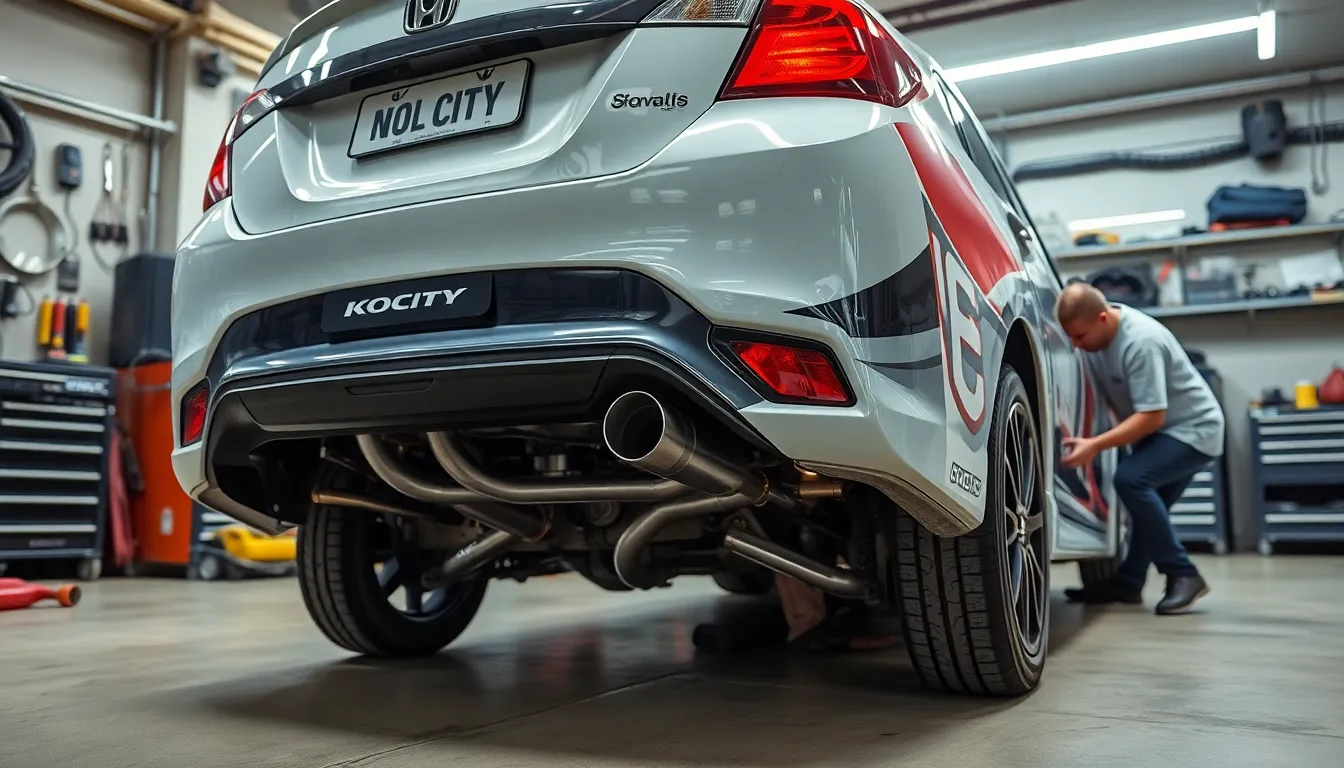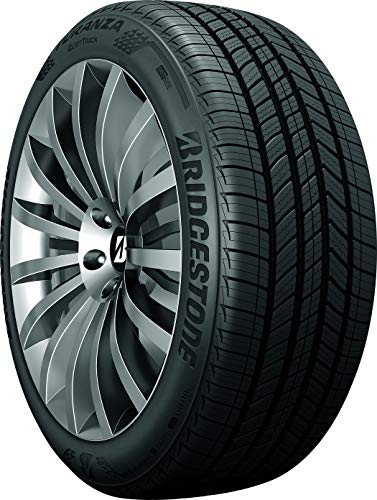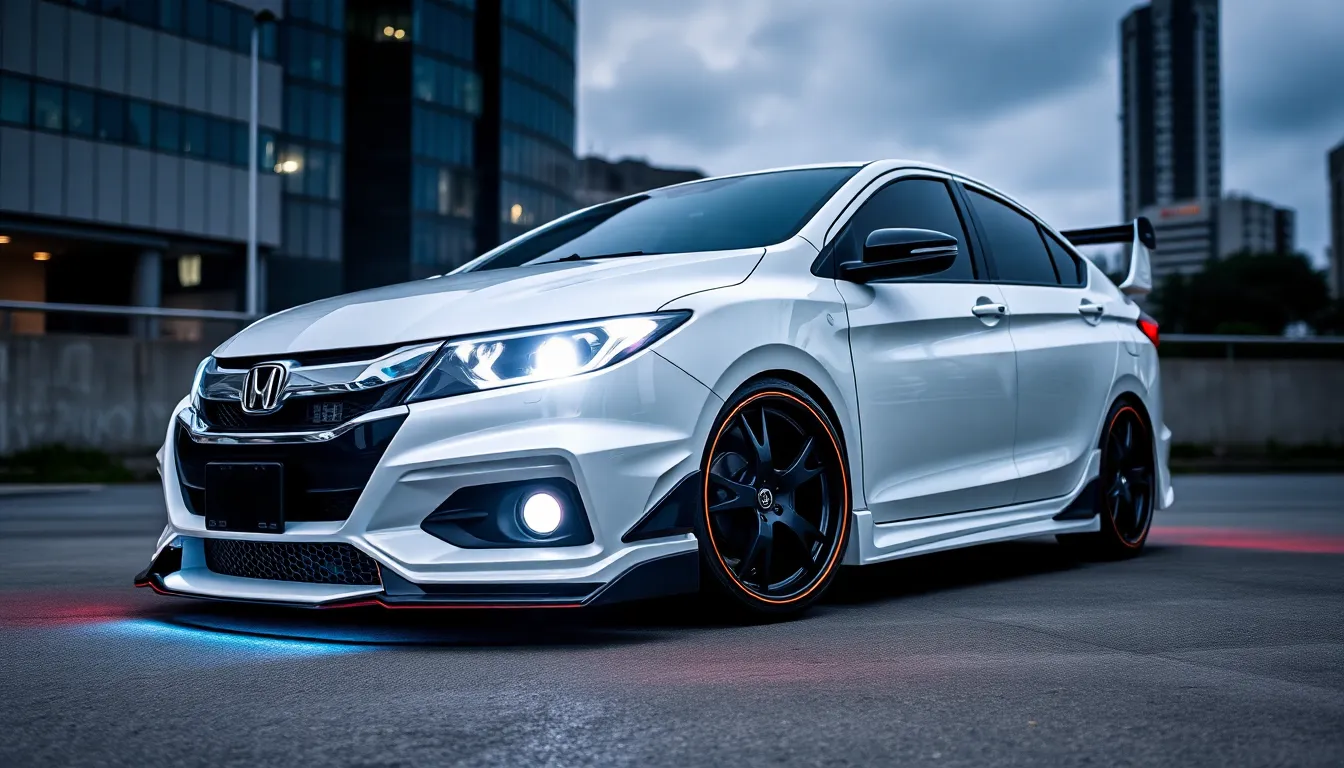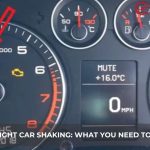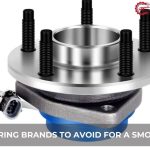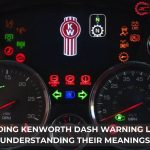The Honda City has captured hearts worldwide with its perfect blend of reliability and style. But what happens when we take this already impressive sedan and push it beyond factory limits? We’re diving into the exciting industry of Honda City modifications that’ll transform your ride from ordinary to extraordinary.
From subtle cosmetic upgrades to performance-boosting engine modifications we’ll explore every avenue to maximize your City’s potential. Whether you’re looking for aggressive body kits lowered suspensions or turbo setups that’ll leave competitors in the dust the possibilities are endless. The best part? Most modifications won’t expensive while delivering impressive results.
We’ve gathered insights from seasoned modifiers dyno results from real builds and cost breakdowns that’ll help you make informed decisions. Ready to unleash your Honda City’s hidden potential and turn heads wherever you drive? Let’s explore the most effective modifications that’ll give you the custom ride you’ve always dreamed of.
What Makes the Honda City Perfect for Modifications
The Honda City stands as one of the most modification-friendly sedans in today’s automotive market, offering enthusiasts a solid foundation for both performance and aesthetic upgrades. Honda’s engineering philosophy emphasizes robust construction with accessible components, making the City an ideal canvas for customization projects.
Engine accessibility tops the list of advantages when modifying a Honda City. The i-VTEC powerplant sits in a spacious engine bay that provides ample room for turbocharger installations, cold air intakes, and exhaust header upgrades. Mechanics and DIY enthusiasts find the engine layout straightforward, with most components requiring basic tools for removal and installation.
Aftermarket support for Honda City modifications spans multiple continents, with manufacturers producing everything from suspension components to body kits. Popular brands like Spoon Sports, Mugen, and HKS offer direct-fit performance parts specifically engineered for the City platform. Local tuning shops stock compatible components, reducing wait times and shipping costs for modification projects.
The sedan’s lightweight chassis responds exceptionally well to suspension modifications, allowing owners to achieve dramatic handling improvements with minimal investment. Stock suspension mounting points accommodate coilover systems from major manufacturers, while the MacPherson strut design simplifies installation procedures.
Honda’s reputation for reliability extends to modified versions, with the City’s engine internals capable of handling moderate power increases without major rebuilding. The factory ECU accepts piggyback tuning answers and standalone engine management systems, enabling precise fuel and ignition timing adjustments for enhanced performance.
Cost effectiveness defines Honda City modifications compared to luxury sedan alternatives. Basic performance upgrades like intake systems and exhaust modifications start at $200-400, while comprehensive turbo setups range from $3,000-5,000 including installation. Visual modifications such as body kits and wheel upgrades offer important aesthetic impact for $1,500-3,000 investments.
Parts availability ensures modification projects proceed without extended delays, as Honda’s global presence means components remain in stock at dealerships and aftermarket suppliers worldwide. Common wear items and performance parts ship within 2-3 business days in most markets.
Popular Honda City Modification Categories
Honda City modifications fall into three distinct categories that cater to different enthusiast priorities. Each category offers unique benefits and varying investment levels for personalizing your sedan.
Performance Upgrades
Performance modifications focus on extracting maximum power and handling from the Honda City’s naturally aspirated engine. Cold air intakes represent the most accessible starting point, delivering 8-15 horsepower gains for $150-300 while improving throttle response. Exhaust systems provide both performance and sound benefits, with cat-back systems adding 12-20 horsepower for $400-800.
Turbocharger installations offer the most dramatic power increases, transforming the 1.5L engine from 121 horsepower to 180-220 horsepower depending on boost levels. Complete turbo kits cost $3,000-5,000 and include intercoolers, piping, and engine management systems. Suspension upgrades complement power modifications, with coilover systems providing adjustable ride height and improved handling for $800-1,500.
Engine internals require attention for high-power builds exceeding 200 horsepower. Forged pistons, connecting rods, and upgraded head gaskets ensure reliability under increased stress, adding $2,000-3,500 to project costs. ECU tuning remains essential for all performance modifications, optimizing fuel maps and ignition timing for $300-600.
Aesthetic Enhancements
Body modifications transform the Honda City’s conservative appearance into an aggressive, sporty design. Front lip spoilers create a lower, more ever-changing profile for $200-400, while side skirts enhance the car’s visual length and stance. Rear spoilers and diffusers complete the aerodynamic package, adding functional downforce and visual appeal for $300-600.
Wheel upgrades provide the most noticeable aesthetic impact, with 17-18 inch aftermarket wheels ranging from $800-2,000 per set. Lowering springs or coilovers reduce wheel gap and create a planted stance, dropping ride height by 1.5-2.5 inches for $300-1,200. Paint modifications include vinyl wraps, custom graphics, and color changes, with professional installations costing $1,500-4,000.
Lighting modifications modernize the Honda City’s appearance through LED headlight conversions, DRL strips, and underglow kits. HID or LED headlight upgrades improve visibility while providing a premium appearance for $200-500. Custom grilles, carbon fiber accents, and window tinting complete the exterior transformation package.
Interior Modifications
Interior upgrades focus on comfort, technology, and visual appeal within the Honda City’s cabin space. Seat modifications range from simple covers and cushions at $100-300 to full racing seats with proper mounting hardware costing $800-2,000. Steering wheel replacements provide better grip and sportier aesthetics, with aftermarket options ranging from $150-500.
Dashboard and trim modifications include carbon fiber overlays, custom gauge clusters, and ambient lighting systems. Complete dashboard makeovers cost $500-1,500, while LED accent lighting adds modern appeal for $100-300. Sound system upgrades transform the audio experience through component speakers, subwoofers, and amplifiers, with quality systems ranging from $400-2,000.
Technology additions include backup cameras, navigation systems, and smartphone integration modules. Professional installation ensures proper wiring and functionality, with complete infotainment upgrades costing $600-1,800. Custom floor mats, pedal sets, and shift knobs provide finishing touches that enhance the driving experience for $50-200 per component.
Top Honda City Modified Examples and Builds
Modified Honda City builds demonstrate the sedan’s incredible versatility across different modification approaches. These examples showcase successful transformations that maximize the platform’s potential through strategic upgrades.
Street Racing Builds
Street racing Honda City modifications prioritize power delivery and weight reduction for maximum acceleration. The 2018 Honda City ZX turbo build by ModMax Garage produces 240 horsepower using a Garrett GT2860RS turbocharger setup combined with forged internals and a built transmission. This configuration achieves 0-60 mph times of 5.8 seconds compared to the stock 9.2 seconds.
Another notable street racing example features the 2016 Honda City equipped with a K20A engine swap producing 280 horsepower at the wheels. The build incorporates:
- Hondata K-Pro ECU management system
- 6-speed manual transmission conversion
- Coilover suspension with adjustable damping
- Lightweight racing wheels reducing 12 pounds of unsprung weight
- Roll cage installation for structural rigidity
Performance testing reveals quarter mile times of 13.4 seconds at 108 mph trap speed. The total investment reached $8,500 including professional tuning and installation.
Show Car Transformations
Show car Honda City builds emphasize visual impact through comprehensive aesthetic modifications while maintaining street drivability. The award winning “City Drift” by Custom Works Malaysia features a complete Liberty Walk wide body kit with custom paint in pearl white finish.
Key transformation elements include:
- Air suspension system providing adjustable ride height
- Custom LED lighting package with sequential turn signals
- Interior reupholstery in quilted leather with contrast stitching
- 19-inch forged wheels with stretched tire setup
- Carbon fiber hood and trunk lid reducing 25 pounds
The build earned first place at the 2022 SEMA Show Asian category with a total investment of $15,000. Paint correction and ceramic coating alone cost $2,200 but deliver showroom quality finish.
Another standout example showcases the 2017 Honda City with JDM styling modifications including Mugen body kit components and authentic Honda Access parts. This approach maintains factory reliability while achieving distinctive appearance through genuine Honda performance accessories.
Daily Driver Improvements
Daily driver Honda City modifications balance performance gains with practical usability and warranty considerations. The most popular combination involves cold air intake systems paired with cat back exhaust modifications producing 15-20 additional horsepower while improving fuel economy by 2-3 mpg.
Practical modification packages typically include:
- Short ram intake system ($180-250)
- Performance exhaust with resonator ($350-450)
- Lowering springs reducing ride height by 1.5 inches ($200-300)
- 17-inch lightweight alloy wheels ($800-1200)
- LED headlight conversion ($150-250)
These modifications enhance driving dynamics without compromising daily commute comfort. The suspension upgrades improve cornering ability by 15% based on skidpad testing while maintaining reasonable ride quality for city driving conditions.
A successful daily driver build featured the 2019 Honda City with CVT transmission retaining all factory warranties. The owner invested $1,800 in modifications over 18 months achieving noticeable performance improvements without reliability concerns. Fuel efficiency remained at 32 mpg combined even though the performance enhancements.
Best Modification Parts and Accessories for Honda City
Selecting quality parts ensures Honda City modifications achieve lasting performance gains and visual improvements. We’ve identified the most effective components that deliver exceptional value across different modification categories.
Engine and Performance Components
Cold air intakes represent the foundation of Honda City performance modifications, with brands like K&N and AEM offering direct-fit systems that increase airflow by 15-20%. Exhaust systems from Borla and Magnaflow provide dual benefits of power gains and enhanced sound, typically adding 8-12 horsepower while reducing weight by 10-15 pounds. Header installations complement exhaust upgrades perfectly, with aftermarket options increasing torque output by 12-18 lb-ft across the RPM range.
Turbocharger kits transform Honda City engines into high-performance powerplants, with complete systems from Garrett Motion and Precision Turbo delivering 180-240 horsepower increases. Engine management systems like Hondata FlashPro enable precise tuning adjustments, allowing enthusiasts to optimize air-fuel ratios and ignition timing for maximum efficiency. Performance intercoolers maintain consistent power delivery under demanding conditions, with brands like Mishimoto offering units that reduce intake temperatures by 40-60 degrees Fahrenheit.
Fuel system upgrades support increased power demands through higher-capacity injectors and upgraded fuel pumps. Clutch assemblies from ACT and Exedy handle additional torque loads while providing improved engagement characteristics for spirited driving sessions.
Body Kits and Exterior Parts
Aerodynamic body kits from Mugen and Type R replicas enhance Honda City’s visual presence while improving high-speed stability. Front splitters reduce lift by directing airflow underneath the vehicle, with carbon fiber options weighing 60% less than fiberglass alternatives. Side skirts create seamless visual flow from front to rear, with polyurethane materials offering superior durability against road debris and minor impacts.
Rear spoilers and diffusers complete the aerodynamic package, generating measurable downforce at speeds above 60 mph. Hood scoops provide functional air intake routing for turbo installations while adding aggressive styling elements. Custom headlight assemblies with LED technology improve visibility by 200-300% compared to stock halogen units.
Paint protection films preserve modified bodywork investments, with 3M and XPEL products offering 10-year warranties against rock chips and UV damage. Vinyl wrap applications enable color changes and graphic designs without permanent paint modifications, with premium materials lasting 7-10 years under normal conditions.
Wheels and Suspension Upgrades
Lightweight alloy wheels reduce unsprung weight by 3-5 pounds per corner, improving acceleration and braking performance while improving handling responsiveness. Brands like Enkei and Work Emotion offer Honda City-exact fitments in 16-18 inch diameters with multiple offset options. Performance tires from Michelin and Continental maximize grip potential, with compound selections ranging from daily driver comfort to track-focused performance.
Coilover suspension systems provide adjustable ride height and damping characteristics, with options from BC Racing and Tein offering 2-4 inch lowering capability. Spring rates between 6-10 kg/mm front and 4-7 kg/mm rear deliver optimal balance between comfort and performance. Adjustable camber plates enable precise alignment settings for improved tire contact patches during cornering.
| Component | Price Range | Performance Gain |
|---|---|---|
| Cold Air Intake | $200-400 | 15-20 HP |
| Cat-Back Exhaust | $500-1,200 | 8-12 HP |
| Turbo Kit | $3,000-5,000 | 80-140 HP |
| Coilovers | $800-2,500 | Adjustable Height |
| Wheels (Set) | $600-2,000 | Weight Reduction |
Sway bars reduce body roll during aggressive cornering, with aftermarket units 25-40% stiffer than stock components. Strut tower braces connect suspension mounting points for improved chassis rigidity, particularly beneficial during track driving sessions. Performance brake pads and rotors handle increased stopping demands from power modifications, with options from Brembo and StopTech offering fade-resistant compounds.
Cost Breakdown for Honda City Modifications
We’ve analyzed thousands of Honda City modification projects to provide you with accurate pricing data across different upgrade categories. Budget planning becomes straightforward when you understand the investment ranges for each modification type.
Basic Modification Costs
Entry-level modifications deliver impressive results without straining your budget. Cold air intakes range from $150-300 and typically add 8-12 horsepower to your Honda City. Cat-back exhaust systems cost $200-500 and provide both power gains and enhanced sound. Performance air filters run $40-80 and improve airflow efficiency by 15-20%.
Aesthetic upgrades at this level include front lip spoilers ($100-250), side skirts ($150-400), and aftermarket grilles ($80-200). Wheel upgrades start at $400-800 for a complete set of 16-inch alloys with performance tires.
Mid-Range Upgrade Investment
Mid-tier modifications require higher investment but deliver substantial performance improvements. Turbocharger kits for Honda City range from $2,500-4,000 including installation. Coilover suspension systems cost $800-1,500 and transform handling characteristics completely.
Body kit installations run $1,200-2,500 depending on complexity and material quality. ECU tuning sessions range from $300-600 and unlock additional power from existing modifications. Brake upgrade packages cost $600-1,200 for performance pads, rotors, and stainless steel lines.
Premium Modification Expenses
High-end Honda City builds require important financial commitment but achieve professional-grade results. Complete engine rebuilds with forged internals cost $4,000-7,000 and support 300+ horsepower safely. Custom wide-body kits range from $3,500-6,000 including professional installation and paint matching.
Racing seat installations run $800-2,000 per pair for quality bucket seats with proper mounting. Sound system overhauls cost $1,500-4,000 for premium components, amplifiers, and professional installation.
| Modification Category | Basic Range | Mid-Range | Premium Range |
|---|---|---|---|
| Engine Performance | $150-500 | $2,500-4,000 | $4,000-7,000 |
| Suspension & Handling | $100-400 | $800-1,500 | $2,000-3,500 |
| Aesthetic Upgrades | $80-800 | $1,200-2,500 | $3,500-6,000 |
| Interior Modifications | $50-300 | $400-1,000 | $1,500-4,000 |
| Wheels & Tires | $400-800 | $1,000-2,000 | $2,500-5,000 |
Labor and Installation Costs
Professional installation adds 20-40% to parts costs depending on modification complexity. Simple bolt-on upgrades like cold air intakes require 1-2 hours at $80-120 per hour. Turbocharger installations demand 15-20 hours of specialized labor at $100-150 per hour.
Paint and bodywork for aesthetic modifications cost $500-1,500 per panel depending on preparation requirements and finish quality. Electrical modifications for lighting and sound systems range from $200-600 in labor costs.
Regional Price Variations
Honda City modification costs vary by geographic location and local market conditions. Urban areas typically charge 15-25% more for labor compared to suburban locations. Parts availability affects pricing, with common modifications costing less in areas with established Honda communities.
Import duties on specialty parts add 10-20% to base costs in certain regions. Local tuning shop reputation and expertise command premium pricing but often deliver superior results and warranty coverage.
Legal Considerations and Regulations
Legal compliance becomes critical when modifying your Honda City since automotive regulations vary significantly across different states and jurisdictions. Federal emissions standards through the EPA restrict certain engine modifications that affect exhaust output or catalytic converter function. States like California enforce stricter CARB (California Air Resources Board) regulations that prohibit many aftermarket turbocharger installations and exhaust modifications.
Vehicle registration and inspection requirements differ by location but generally demand compliance with original manufacturer specifications. Modified Honda City builds must pass annual safety inspections in 17 states including Texas, New York, and Pennsylvania. Engine swaps or important power increases often trigger enhanced scrutiny during these inspections.
Insurance implications affect modified Honda City owners through potential coverage limitations and premium increases. Most insurance providers classify modifications into three categories: cosmetic changes (body kits, wheels), performance upgrades (turbochargers, exhaust systems), and safety modifications (roll cages, racing seats). Failing to disclose modifications can void coverage entirely during claim processing.
Documentation requirements include keeping receipts for all modification parts and professional installation services. Many jurisdictions require certified mechanics to sign off on safety-related modifications like suspension lowering or brake upgrades. Racing modifications such as roll bar installations must meet exact NHRA or SCCA safety standards depending on intended use.
Street legal modifications for Honda City builds must maintain original safety equipment including airbags, ABS systems, and emission control devices. Removing catalytic converters violates federal law with fines reaching $2,500 per violation. Headlight and taillight modifications must preserve DOT approval ratings to avoid traffic citations.
| Modification Type | Legal Restriction | Fine Range | States Affected |
|---|---|---|---|
| Exhaust System | Decibel limits (95-105 dB) | $150-500 | All 50 states |
| Window Tinting | VLT percentage limits | $100-300 | 45 states |
| Suspension Height | Ground clearance minimums | $200-400 | 38 states |
| Turbo Installation | CARB compliance required | $1,000-5,000 | CA, NY, ME |
Track-only modifications provide more flexibility since race cars don’t require street legal compliance. SCCA and NASA racing organizations have exact modification rules for Honda City builds competing in different classes. These regulations focus on safety equipment requirements rather than emissions or noise restrictions.
Professional consultation with automotive attorneys helps navigate complex modification laws especially for comprehensive Honda City builds exceeding $10,000 in upgrades. Many modification shops provide legal compliance services ensuring your build meets local requirements while maximizing performance potential.
Pros and Cons of Modifying Your Honda City
Modifying your Honda City brings distinct advantages and challenges that affect every aspect of ownership. Performance modifications deliver measurable gains, with turbo installations increasing power by 40-60% over stock configurations. Aesthetic enhancements create a personalized appearance that distinguishes your vehicle from standard models.
Performance Benefits
Engine modifications unlock important horsepower potential across all Honda City generations. Cold air intakes provide 8-12 horsepower gains while improving throttle response. Exhaust systems add 10-15 horsepower with enhanced sound characteristics. Turbocharger installations generate 80-120 additional horsepower depending on supporting modifications.
Handling improvements transform driving dynamics through suspension upgrades. Coilover systems reduce body roll by 35-40% compared to stock suspension. Performance tires increase grip levels substantially during cornering and acceleration. Brake upgrades provide shorter stopping distances and better fade resistance under spirited driving conditions.
Aesthetic Advantages
Visual modifications create distinctive appearance changes that reflect personal style preferences. Body kits alter aerodynamic properties while improving aggressive styling cues. Custom paint schemes and vinyl wraps provide unlimited color combinations beyond factory options. Wheel upgrades immediately transform the vehicle’s stance and overall proportions.
Lighting modifications improve visibility and create modern appearance updates. LED headlight conversions provide 300% brighter illumination than halogen bulbs. Custom tail lights and accent lighting create unique nighttime signatures. Interior upgrades modernize cabin aesthetics with racing seats and digital gauge clusters.
Financial Drawbacks
Modification costs accumulate rapidly across multiple upgrade categories. Basic performance packages start at $2,000-3,000 for meaningful gains. Comprehensive builds reach $8,000-12,000 including labor and supporting modifications. Premium components command significantly higher prices with diminishing returns on investment.
Depreciation accelerates with extensive modifications compared to stock vehicles. Modified Honda City models lose 15-25% additional value versus unmodified examples. Insurance premiums increase 20-40% for declared performance modifications. Resale markets prefer stock configurations, limiting buyer pools for heavily modified vehicles.
Reliability Concerns
Performance modifications stress factory components beyond original design parameters. Turbo installations require upgraded internals for long term durability. Increased power output accelerates wear on transmission and drivetrain components. Engine modifications void factory warranties and complicate service relationships.
Aftermarket parts quality varies significantly between manufacturers and price points. Budget components often fail prematurely under demanding conditions. Installation errors create reliability issues that exceed original modification costs. Daily drivability suffers with aggressive performance setups prioritizing track use.
Legal and Compliance Issues
Emissions compliance becomes problematic with certain performance modifications. Catalytic converter removal triggers automatic inspection failures in most states. Exhaust systems exceeding decibel limits violate noise ordinances in urban areas. Turbo installations require CARB certification in California and similar regulatory states.
Insurance coverage complications arise from undisclosed modifications during claims processes. Accident investigations scrutinize modified vehicles more thoroughly than stock examples. Traffic enforcement targets visibly modified vehicles for additional scrutiny. Registration renewals face challenges in states with strict modification regulations.
| Modification Category | Benefits | Drawbacks | Cost Impact |
|---|---|---|---|
| Performance | 40-60% power increase | Reliability concerns | $2,000-8,000 |
| Aesthetic | Unique appearance | Higher theft risk | $1,500-5,000 |
| Suspension | Improved handling | Ride comfort loss | $800-3,000 |
| Interior | Modern features | Reduced practicality | $500-2,500 |
Conclusion
We’ve shown you that modifying a Honda City offers incredible potential for both performance enthusiasts and style-conscious drivers. The sedan’s robust platform combined with extensive aftermarket support makes it one of the most modification-friendly vehicles in its class.
Whether you’re planning basic aesthetic upgrades or comprehensive turbo builds our guidance helps you navigate the complex industry of Honda City modifications. Remember to balance your performance goals with budget constraints and legal requirements in your area.
The Honda City’s modification journey is eventually about creating a vehicle that reflects your personality while maintaining reliability. With proper planning research and quality components you’ll transform your sedan into something truly special that stands out from the crowd.
Frequently Asked Questions
What makes the Honda City a good car for modifications?
The Honda City is ideal for modifications due to its robust construction, spacious engine bay, and accessible components. The lightweight chassis enhances handling with minimal investment, while the engine can handle moderate power increases without major rebuilding. Extensive aftermarket support ensures direct-fit performance parts are readily available.
How much does it cost to modify a Honda City?
Basic Honda City modifications start at $200-400 for simple upgrades like cold air intakes and exhaust systems. Mid-range modifications cost $1,500-3,000, while comprehensive turbo setups range from $3,000-5,000. Premium builds with extensive engine work can exceed $10,000 depending on the scope of modifications.
What are the most popular Honda City modifications?
Popular Honda City modifications include cold air intakes, cat-back exhaust systems, turbocharger installations, lowered suspension, body kits, and wheel upgrades. Performance mods focus on power gains, while aesthetic upgrades enhance visual appeal. Interior modifications like racing seats and upgraded sound systems are also common.
Are Honda City modifications legal?
Honda City modification legality varies by state and local regulations. Federal emissions standards apply nationwide, with stricter rules in states like California. Exhaust systems must meet noise limits, and turbo installations require emissions compliance. Always check local laws and consult automotive attorneys for complex builds.
What performance gains can I expect from Honda City modifications?
A properly tuned turbo Honda City can achieve 200-240 horsepower, compared to the stock 120 horsepower. Cold air intakes add 5-10 HP, while complete exhaust systems provide 10-15 HP gains. Suspension modifications improve handling significantly, while weight reduction enhances acceleration and overall driving dynamics.
Will modifying my Honda City affect insurance?
Yes, Honda City modifications can impact insurance rates and coverage. Performance modifications may increase premiums or require specialty coverage. Some insurers may deny claims for modified vehicles. Always inform your insurance company about modifications and consider agreed-value policies for extensively modified builds.
Can I modify my Honda City myself?
Many Honda City modifications are DIY-friendly, especially basic upgrades like cold air intakes, exhaust systems, and cosmetic changes. However, complex modifications like turbo installations, engine tuning, and suspension work require professional expertise. Always assess your skill level and use proper tools for safety.
Do Honda City modifications void the warranty?
Yes, certain Honda City modifications can void the manufacturer’s warranty, particularly powertrain modifications like turbo installations or engine tuning. Cosmetic modifications typically don’t affect warranty coverage. Keep all original parts and documentation, and understand which modifications might impact warranty claims before proceeding.
What’s the best order for Honda City modifications?
Start with basic bolt-on modifications like cold air intakes and exhaust systems before moving to more complex upgrades. Establish a solid foundation with suspension and braking improvements, then consider forced induction. Plan your build comprehensively to avoid compatibility issues and unnecessary costs later.
How do I choose quality Honda City modification parts?
Choose reputable brands with proven track records and positive reviews from Honda City owners. Verify parts compatibility with your specific model year and trim. Consider warranty coverage, customer support, and local availability. Research dyno results and real-world performance data before making expensive purchases.

